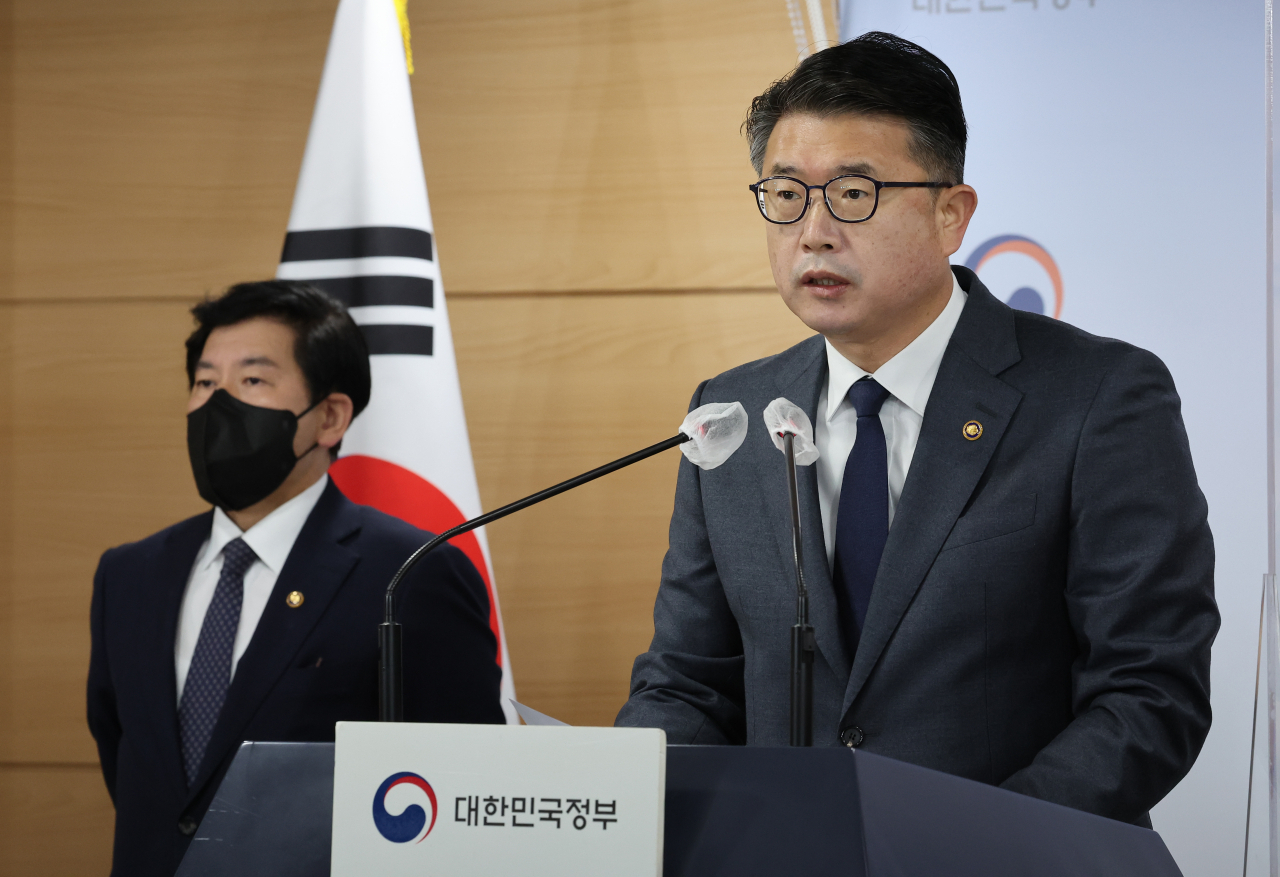Ministry to inject W11.2tr into higher, lifelong education
By Im Eun-byelPublished : Nov. 15, 2022 - 14:57

The government will allot an extra 11.2 trillion won ($8.4 billion) for higher and lifelong education, redirecting 3.2 trillion won from the budget for early childhood, elementary and secondary education, the Ministry of Education announced Tuesday.
The Korean government has been stepping up its efforts to increase support for higher education, following President Yoon Suk-yeol’s initiative to expand the local semiconductor and technology industries.
From earlier this year, the ministry has been lifting restrictions on universities -- such as student quotas and faculty qualifications -- as part of its drive to educate more students in areas it sees as important for future growth.
The new budget will consist of 8 trillion won allocated for universities and another 3.2 trillion won from the local education subsidy budget designated for early childhood, elementary and secondary education.
The 3.2 trillion won, originally given to local education offices across the nation, will be given out to state and private universities, under the plan to call for autonomous innovation at universities and nurture universities located outside of the greater Seoul area. The budget will be used for facility renovations, development of new curriculum and more.
The Education Ministry explained the move comes as the school-age population -- those aged 6-17 -- has decreased by 34 percent, resulting in an imbalance between the support for early childhood, elementary and secondary education and higher and lifelong education.
According to the Education Ministry, while per capita public education expenditure for elementary and secondary education is higher than that of the OECD average, it is the opposite for higher education, even though the birthrate is lower in Korea and university enrollment is high.
The public education expenditure per head of population in Korea in 2019 was $15,200, 141.8 percent of the OECD average at $722. For higher education, however, the expenditure per person was $11,287, 64.3 percent of the OECD average at $17,559.
The revised bill, however, has to make it past the National Assembly to be enacted.
Additionally, since the ministry announced it will reallocate some of the budget for early childhood, elementary and secondary education to higher and lifelong education in July, local education chiefs have criticized the plan.
“Based on data analyzing the demand for future education, education offices need a future education budget of 62 trillion won for the next three years,” a committee of superintendents of education offices said during a press conference held at the National Assembly on Tuesday.
Earlier this month, newly-appointed Education Minister Lee Ju-ho said the ministry would not push for the revision if education offices were against the plan.
“If all superintendents of education offices are against the reform, the revised bill will not be passed,” Lee told the press last week. “We will work on the best agreement possible.”
The point of contention now is whether the Education Ministry can persuade the local education chiefs.
The ministry said it did not run a simulation on how the 3.2 trillion won deduction of the local education subsidy budget would affect the 68.9 trillion won budget for early childhood, elementary and secondary education.
But it deems that the deduction would not have a big effect, as education offices' reserve funds are large.
“It is estimated that local education offices' reserve funds would reach 19.4 trillion won by the end of this year,” Education Vice Minister Jang Sang-yoon said at a briefing held Tuesday. “This means that there is an inefficiency in education budget, that the money that should be invested somewhere else is not being invested.”



















![[Today’s K-pop] Treasure to publish magazine for debut anniversary](http://res.heraldm.com/phpwas/restmb_idxmake.php?idx=642&simg=/content/image/2024/07/26/20240726050551_0.jpg&u=)